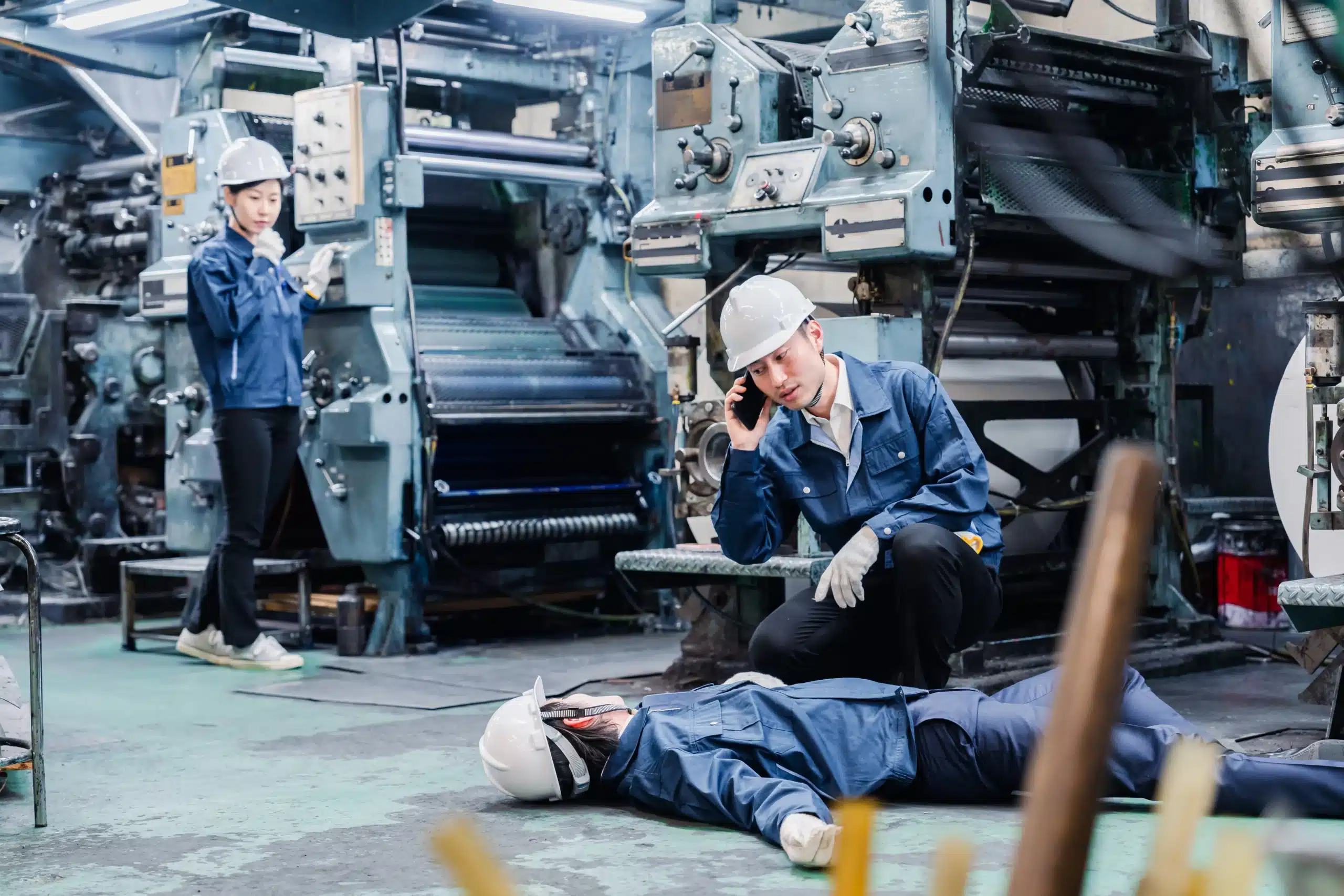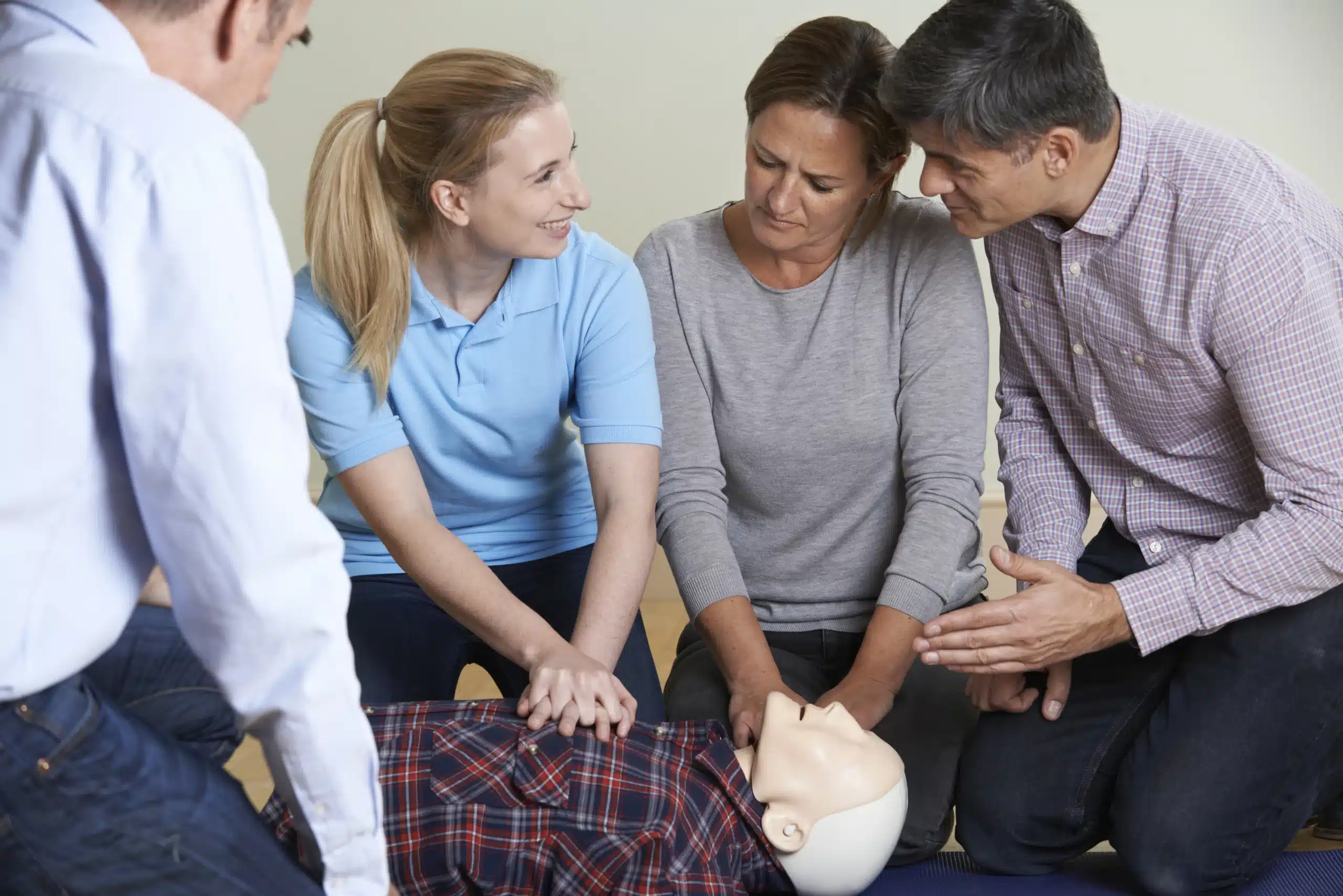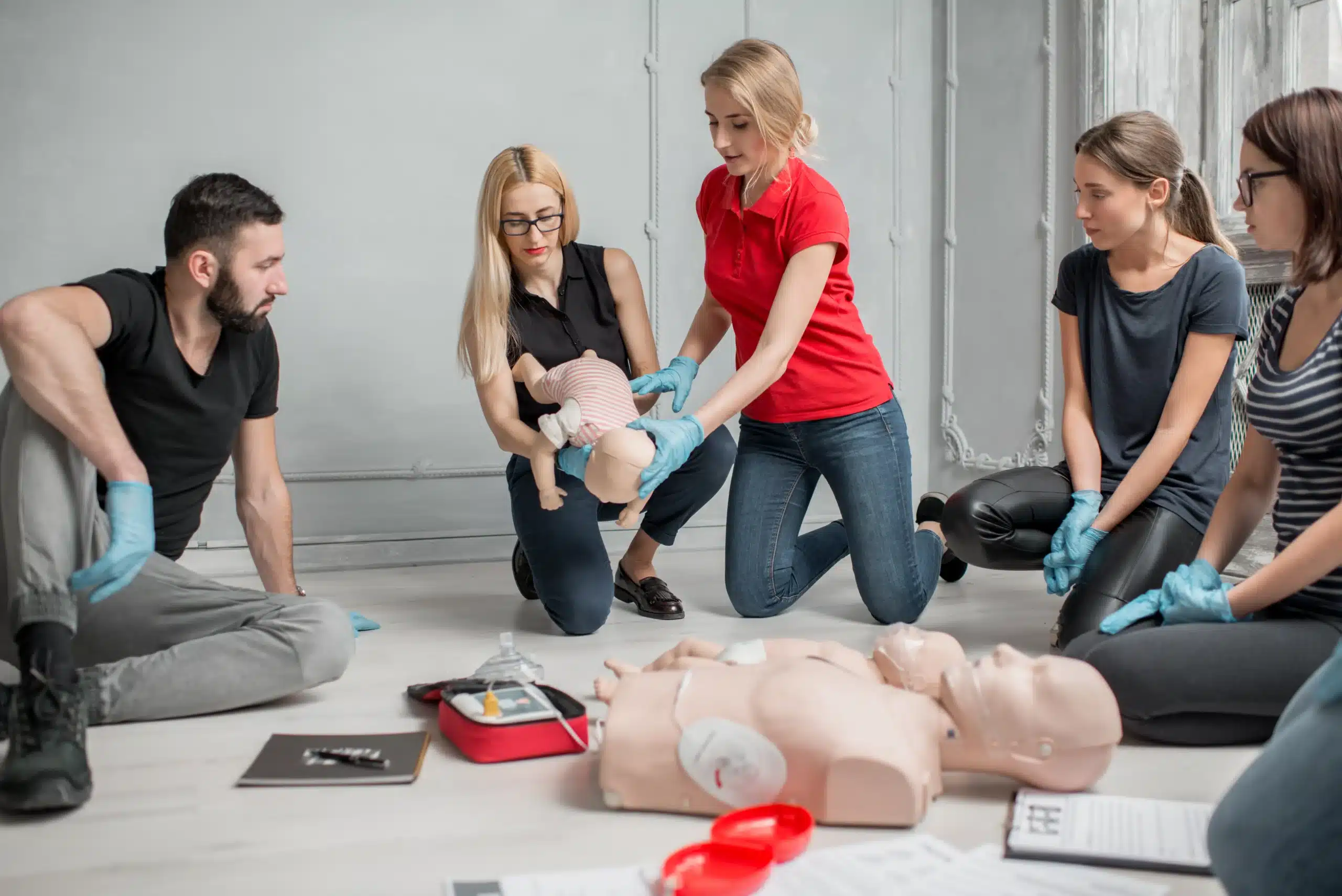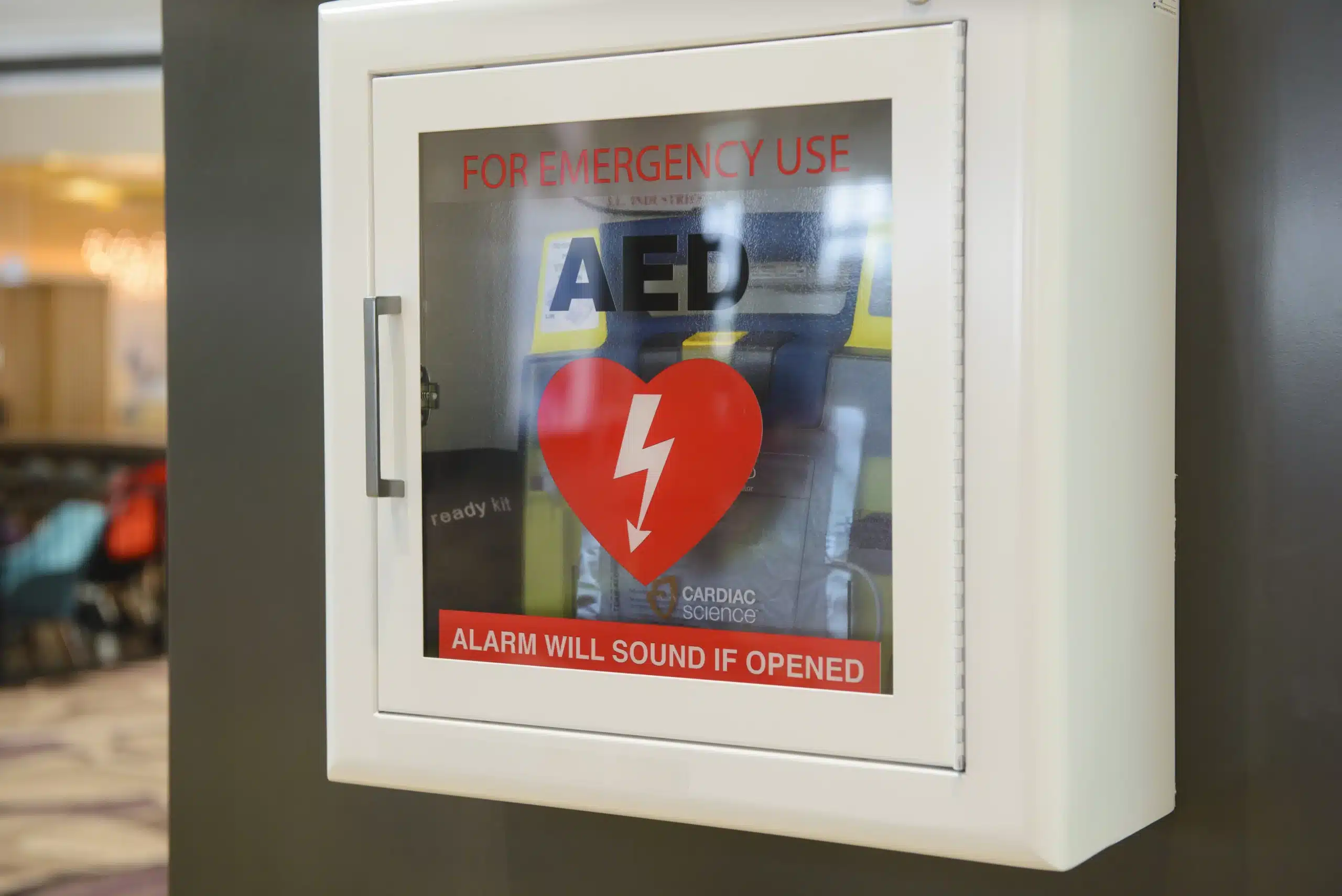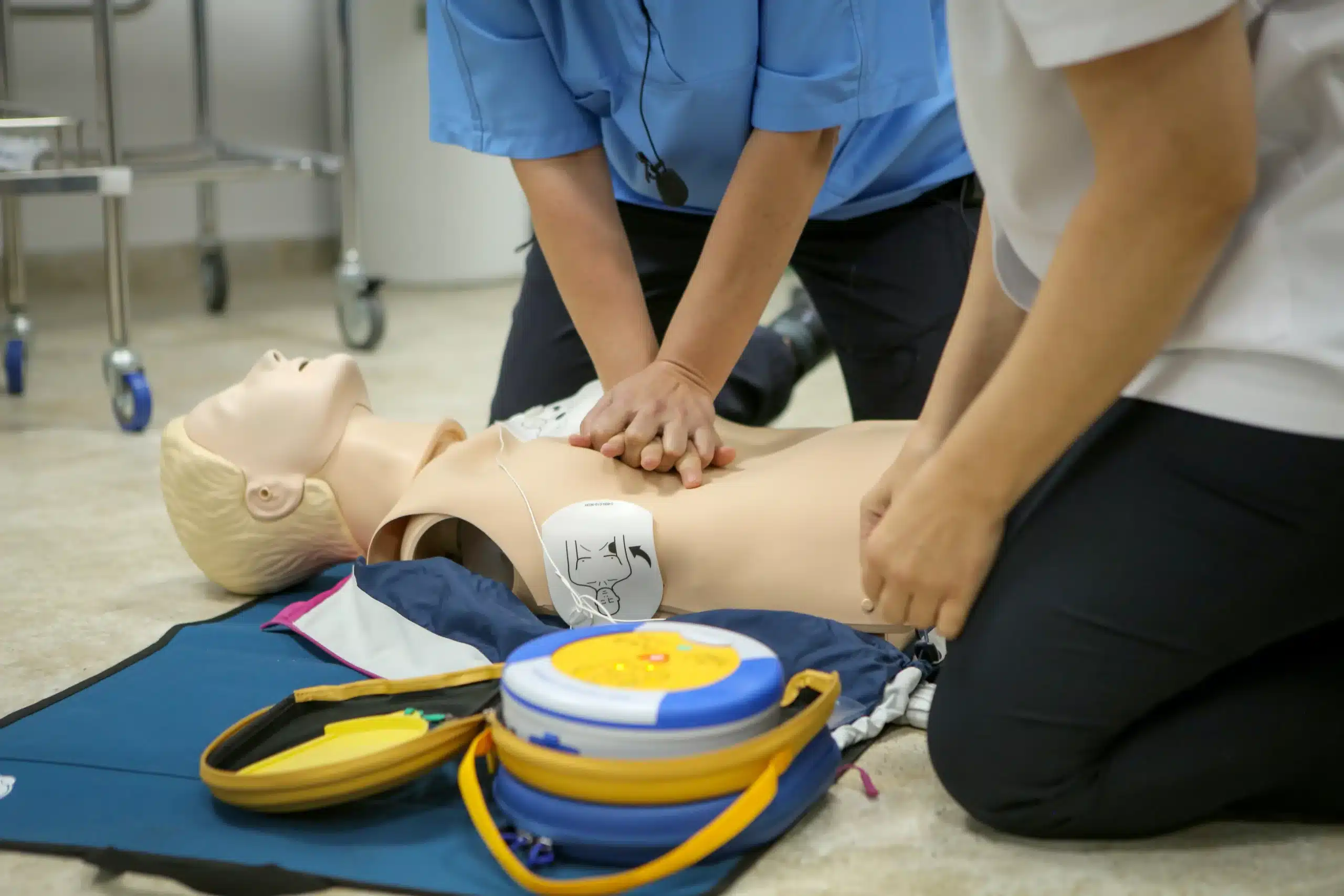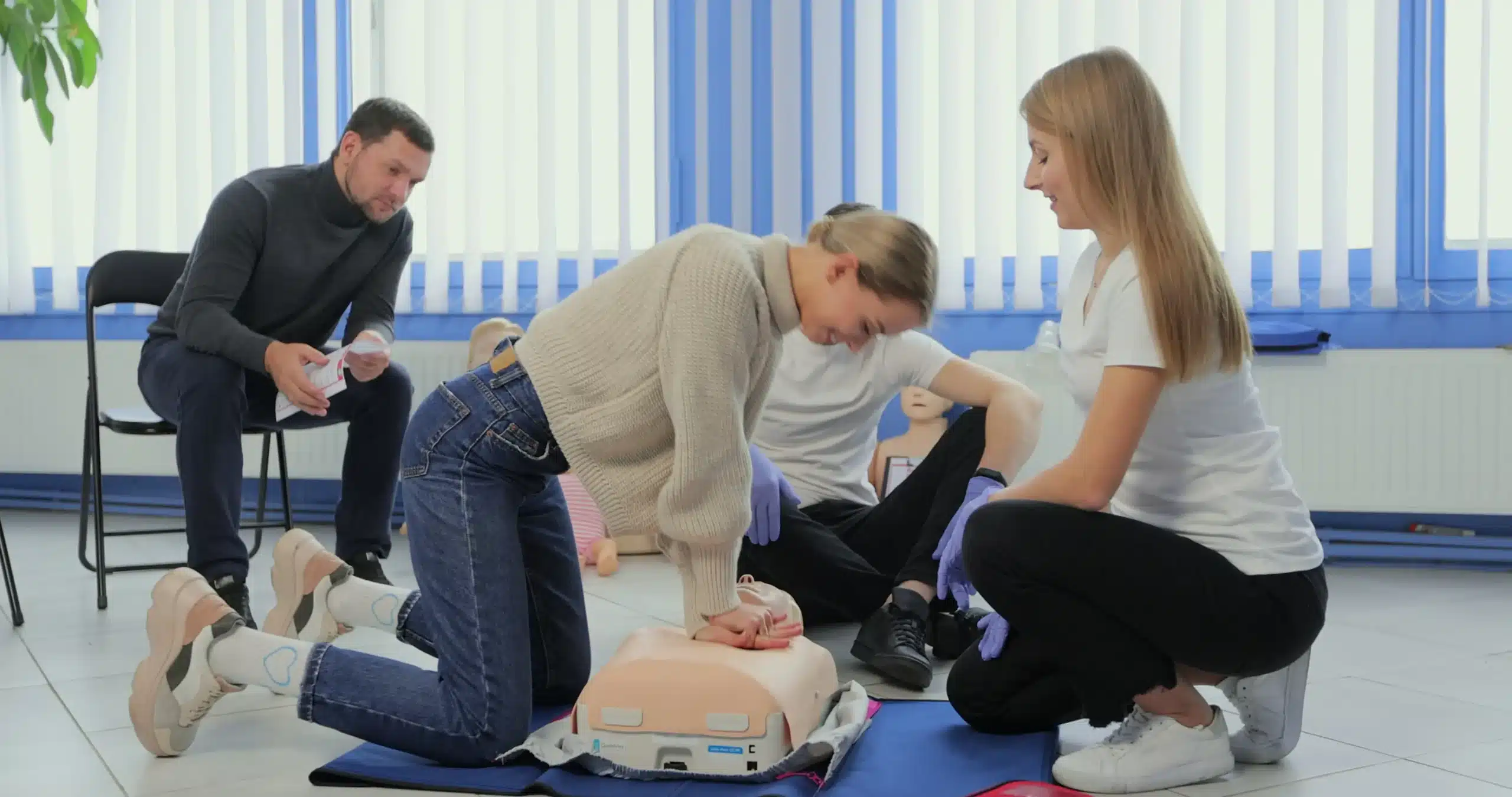Empower yourself with the knowledge and skills to save a life by exploring CPR courses in Sacramento. This comprehensive guide covers everything you need to know about CPR training, from the basics to advanced certifications. Whether you’re a medical professional, a concerned parent, or simply someone who wants to make a difference in their community, this guide will help you find the right CPR course to fit your needs. We’ll explore the different types of CPR courses available in Sacramento, discuss certification options from reputable organizations like the American Heart Association, and provide tips for choosing the right training provider. We’ll also highlight Woodland CPR Classes, a woman-owned AHA Training Center known for its excellent customer service and competitive pricing.
Key Takeaways
- CPR training is a powerful tool for anyone: Whether you’re a healthcare professional, a childcare provider, or simply someone who wants to be prepared, CPR certification gives you the skills to make a difference in an emergency. Find the right course type for your specific needs.
- Choose a course format that works for you: In-person classes offer hands-on learning and immediate feedback, while online and blended learning options provide flexibility. Select the format that best suits your learning style and schedule.
- Select a reputable training provider and consider the value: Look for AHA-certified courses and consider factors like class size, location, and schedule. Many providers offer group discounts, so be sure to ask!
What are CPR Courses and Why are They Important?
CPR courses teach you how to respond to cardiac arrest and other life-threatening emergencies. CPR, or Cardiopulmonary Resuscitation, combines chest compressions and rescue breaths to circulate oxygenated blood to the brain and other vital organs. It’s a bridge that keeps someone alive until professional medical help arrives. Learning CPR empowers you to make a real difference, and in our community, knowing CPR can be essential for helping family, friends, or even strangers. CPR training is a critical skill, and having trained individuals nearby can significantly improve survival rates in emergencies.
Types of CPR Courses
Several organizations offer a variety of CPR courses tailored to different needs. The American Heart Association (AHA) sets the standard for CPR training, and many providers offer AHA-certified courses. These courses range from basic CPR and first aid to advanced life support (like our BLS certification). You’ll find options for specific age groups, such as CPR for infants, children, or adults. Some courses also include training on using an Automated External Defibrillator (AED). Choosing the right course depends on who you anticipate needing to help, your current knowledge, and the training provider’s credentials. For those working in childcare, an EMSA Child Care Health & Safety course may be required.
Prerequisites and Requirements
One of the best things about CPR training is its accessibility. There are generally no prerequisites. The training is designed for people of all ages and backgrounds, regardless of prior medical experience. While anyone can learn CPR, certification is often a requirement or significant advantage for many professions, especially in healthcare, education, and childcare. Even if not mandatory for your job, CPR certification demonstrates your commitment to safety and preparedness. If you’re looking for ways to make yourself more marketable, CPR training is a smart move. We offer group discounts for businesses and organizations interested in training their staff. We also offer RQI programs for healthcare professionals seeking an efficient way to maintain their CPR skills. Our low price guarantee ensures you’re getting the best value.
CPR Course Formats and Duration
Finding the right CPR course often comes down to format and schedule. Let’s break down the most common options so you can choose what works best for you.
In-Person Classes
In-person CPR training remains the gold standard, especially for healthcare professionals and workplace certifications. Why? Because hands-on learning is at the heart of effective CPR. These classes provide real-time practice on mannequins, guided by expert instructors. This approach builds the muscle memory and confidence you need to act quickly and effectively during a real emergency. Plus, the in-person setting allows for immediate feedback and personalized instruction. For those in the Woodland, Davis, and Sacramento areas, Woodland CPR Classes offers daily in-person sessions.
Online Courses
Online CPR courses offer undeniable convenience, allowing you to learn at your own pace from anywhere. However, they often don’t fulfill the requirements for many workplaces, particularly in healthcare. Employers typically prefer in-person training to verify that participants can demonstrate their skills properly. While online courses can be a great starting point for familiarizing yourself with the basics, confirm with your employer or certifying body whether an online-only course meets their specific requirements.
Blended Learning
Blended learning combines the best of both worlds, merging online convenience with essential hands-on practice. This format typically involves completing the theoretical coursework online at your own speed, followed by a dedicated in-person session for practical skills assessment and mannequin practice. Blended learning offers flexibility while still ensuring you gain the crucial hands-on experience necessary for real-world scenarios. If you’re looking for a balanced approach, this might be the ideal choice. Many providers, including Woodland CPR Classes, are now offering blended learning options to cater to diverse learning styles and schedules.
CPR Certification and Validity
Knowing the ins and outs of CPR certification, including which organizations offer training and how long your certification is valid, is key to choosing the right course. This section breaks down everything you need to know about CPR certification in the Sacramento area.
American Heart Association Certification
The American Heart Association (AHA) sets the standard for CPR training. AHA-certified courses are widely accepted and respected. Several organizations in Sacramento offer these courses, covering everything from basic CPR and first aid to advanced life support. If you’re looking for a comprehensive and recognized certification, an AHA-certified course is an excellent choice. Woodland CPR Classes offers a variety of AHA-certified courses to meet your specific needs.
Red Cross Certification
The American Red Cross also provides CPR/AED and first aid classes in Sacramento. They offer various learning formats, including in-person, online, and blended learning (a combination of online and in-person instruction). In-person Red Cross classes typically result in a two-year certification that meets OSHA requirements. This flexibility allows you to choose the learning style that best suits your schedule and preferences. You can learn more about Red Cross CPR training on their website.
Renewing Your Certification
CPR certifications, regardless of the provider, are typically valid for two years. It’s essential to renew your certification before it expires to maintain your skills and credentials. While your certification lasts for two years, studies show that skills can decline within months of initial training. Regular practice and renewal courses help ensure you’re prepared to act confidently in an emergency. Check with your certifying organization, whether it’s the AHA or Red Cross, for details on renewal requirements and available courses. Woodland CPR Classes offers convenient renewal courses to help you stay up-to-date.
CPR Course Costs & Value
Understanding CPR course costs and their value is key to choosing the right training. While cost is a factor, the value of life-saving skills is immeasurable. Let’s break down typical pricing structures and explore the long-term benefits of CPR certification.
Basic Course Pricing
Basic CPR classes can start as low as $59.95, with combined CPR and First Aid certification around $79.95. This accessible pricing at Woodland CPR makes it easy to learn these essential skills. Remember, knowing CPR can make all the difference in an emergency. For our most up-to-date pricing, visit our CPR and First Aid Certification page.
Comprehensive Course Pricing
Beyond basic CPR, more comprehensive courses like ACLS (Advanced Cardiovascular Life Support) and PALS (Pediatric Advanced Life Support) cater to specific professional needs. These courses offer in-depth training in life-saving techniques and are often prerequisites for healthcare roles. While these courses require a greater investment, the specialized knowledge gained can lead to career advancement and equips you with more advanced skills. CPR certification is often a significant advantage in many professions, especially in healthcare, education, and childcare.
Group Rates and Discounts
For businesses, schools, or community groups, consider taking advantage of group discounts. Many CPR training centers, including Woodland CPR, offer reduced rates for group bookings, making it cost-effective to train multiple people at once. To learn more, visit our group discount page. When choosing a provider, look for a proven track record and strong affiliations, like Woodland CPR Classes, an AHA Training Center, known for its commitment to quality training and customer service. We’ve proudly trained over 100,000 students and are committed to competitive pricing with our low price guarantee.
Top CPR Course Providers in Sacramento
Finding the right CPR class can feel overwhelming, but it’s the first step to becoming more confident and prepared for emergencies. Sacramento has several reputable CPR training providers. Whether you’re a healthcare professional, a childcare provider, or simply someone who wants to be prepared, you can find a course that fits your needs.
Woodland CPR Classes
Woodland CPR Classes offers American Heart Association (AHA) courses, including CPR and First Aid, BLS, ACLS, and PALS. They also provide specialized training like the EMSA Child Care Health & Safety course and offer group discounts and RQI programs. As a woman-owned business, they pride themselves on excellent customer service and competitive pricing. They offer classes daily and serve Woodland, Davis, and Sacramento. Learn more about their CPR and First Aid certification. For childcare providers, the EMSA Child Care Health & Safety course is a valuable resource. They also offer convenient group discounts and essential RQI classes. Woodland CPR Classes is committed to providing affordable training and even offers a low price guarantee.
American Red Cross
The American Red Cross is another well-known provider of CPR and First Aid training. They offer various courses designed for different audiences, from basic CPR for the community to more advanced certifications for healthcare providers. You can easily find Red Cross CPR classes throughout the Sacramento area. Check their website to find a class near you.
CPR Certification Sacramento
CPR Certification Sacramento offers a range of AHA-certified courses, making them a convenient option for those seeking certification in the Sacramento area. They often provide various course formats and schedules to accommodate different learning styles and availability.
Local Hospitals and Community Centers
Many local hospitals and community centers in Sacramento offer CPR and First Aid training courses. These courses are often taught by experienced healthcare professionals and provide a practical, hands-on learning environment. Check with hospitals and community centers near you for course schedules and availability. The American Heart Association also provides resources and information on finding a CPR class near you.
Fire Departments
Many fire departments in the Sacramento area also offer CPR training to the public. These courses are often a valuable resource for learning essential lifesaving skills. Contact your local fire department for more information on CPR training opportunities. Learning CPR skills can empower you to respond effectively in medical crises.
Choosing the Right CPR Course
Finding the right CPR course isn’t one-size-fits-all. It depends on your background, goals, and what you need the certification for. Let’s break down how to choose the best course for you.
Considerations for Different Professions
Some professions require specific CPR training. For example, healthcare providers, like doctors and nurses, typically need Advanced Cardiovascular Life Support (ACLS) certification. Others, such as teachers, coaches, or personal trainers, might find a basic CPR and First Aid course perfectly suitable. If you work with children, look for a course that includes pediatric CPR. Even if your job doesn’t specifically require it, having CPR training can be a valuable asset.
CPR for Personal Development
Learning CPR isn’t just for professional reasons. It’s a life skill that empowers you to help in emergencies. Knowing you can potentially save a life brings confidence and preparedness. Whether you’re a parent, grandparent, or simply someone who wants to be prepared, CPR training is a worthwhile personal investment. It’s about being equipped to handle unexpected situations and make a difference.
Addressing Common Concerns and Questions
One common question is, “Which CPR certification is right for me?” Think about who you anticipate needing to help—adults, children, or infants. If you’re unsure, a comprehensive course covering all age groups is a good choice. Also, consider your current knowledge. If you’ve never had CPR training, a basic course is the best place to start. If you’re renewing your certification, look for a refresher course. Always check the training provider’s credentials. Make sure they are certified by a reputable organization like the American Heart Association.
Tips for Selecting a CPR Course
When choosing a CPR course, look for a provider that offers certifications recognized by organizations like the American Heart Association (AHA). These certifications are widely accepted and respected. Consider factors like class size, location, and schedule. Smaller classes often allow for more personalized instruction. Choose a location that’s convenient and a schedule that fits your lifestyle. Don’t hesitate to ask about group discounts, especially if you’re signing up with friends or colleagues. Finally, read reviews and see what other students have to say about their experiences with the training provider.
Related Articles
- CPR Training in Sacramento: Your Guide – Woodland CPR Classes
- Why CPR is Important in Healthcare – Woodland CPR Classes
- CPR Classes in Sacramento: A Complete Guide
- Online CPR Classes in Sacramento: Your Complete Guide – Woodland CPR Classes
- RQI in Davis: Your Guide to Better CPR Skills – Woodland CPR Classes
Frequently Asked Questions
How do I choose the right CPR course for my needs? Consider who you’re most likely to need to use CPR on – adults, children, or infants. A comprehensive course covering all age groups is a good option if you’re unsure. Also, think about your current knowledge level. If you’re new to CPR, start with a basic course. If you’re renewing, a refresher course is best. Always check the training provider’s credentials to ensure they’re certified by a reputable organization like the American Heart Association.
What’s the difference between online and in-person CPR training? In-person classes offer hands-on practice and direct feedback from instructors, which is crucial for building confidence and proper technique. Online courses offer flexibility and convenience, but they may not meet the requirements for some workplaces, especially in healthcare. Blended learning combines online coursework with in-person skills sessions, offering a balance between convenience and practical experience.
How much does CPR certification cost, and how long is it valid? Basic CPR courses can be very affordable, starting around $60, with combined CPR and First Aid courses often priced around $80. More advanced courses like ACLS and PALS have higher costs due to their specialized nature. Most CPR certifications are valid for two years, regardless of the provider. It’s important to renew your certification to maintain your skills and credentials.
What are the benefits of getting CPR certified, even if my job doesn’t require it? CPR training is a valuable life skill that empowers you to assist in medical emergencies. Knowing you can potentially save a life provides confidence and a sense of preparedness, whether you’re at home, work, or out in the community. It’s a worthwhile personal investment that goes beyond professional requirements.
Where can I find reputable CPR training providers in the Sacramento area? Several excellent providers offer CPR training in Sacramento, including Woodland CPR Classes, the American Red Cross, and various local hospitals and community centers. When choosing a provider, look for AHA-certified courses, convenient locations and schedules, and positive reviews from past students. Consider factors like class size and whether they offer group discounts. Don’t hesitate to contact different providers to discuss your specific needs and find the best fit.
